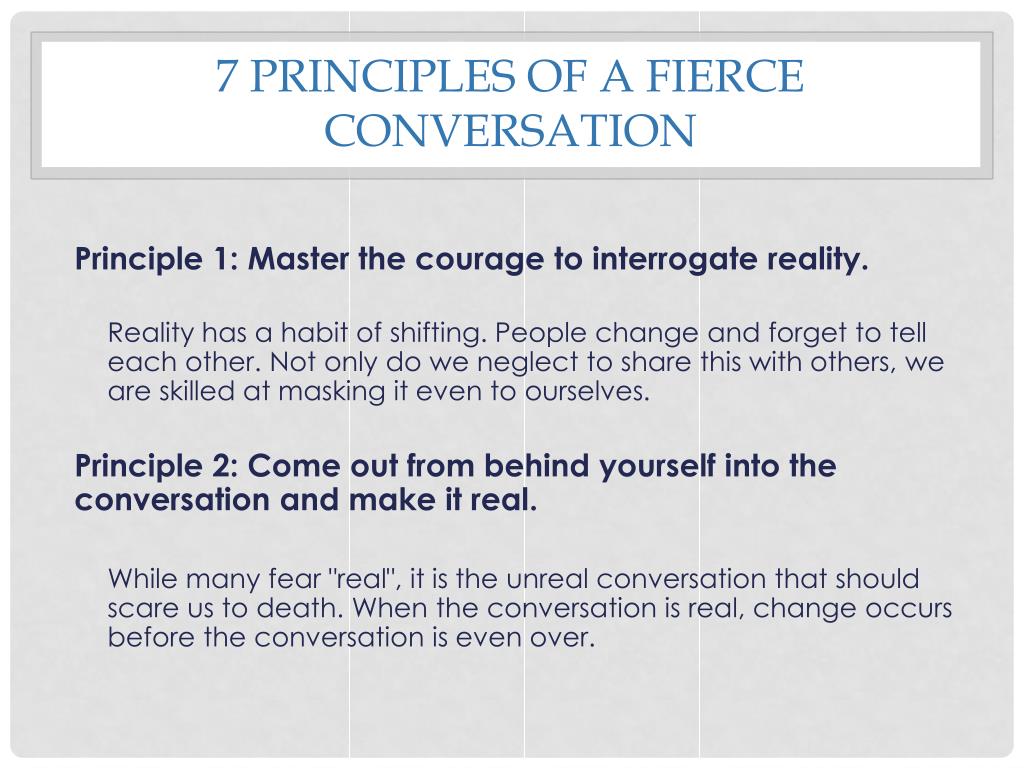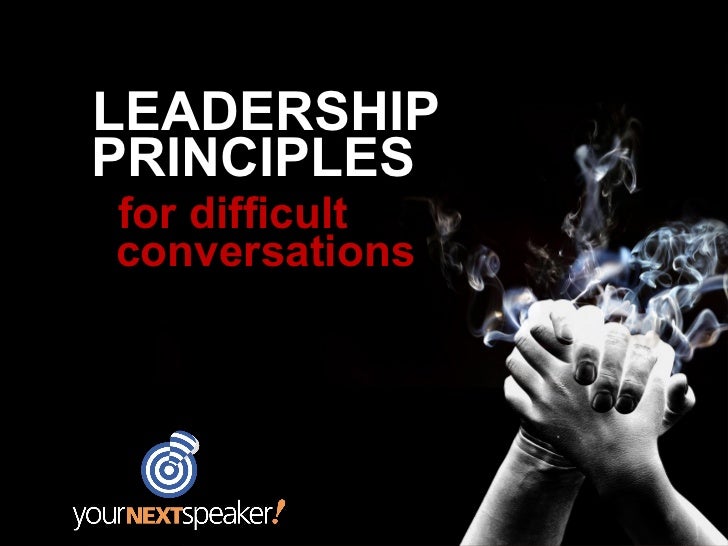
The point here is the willingness to feel discomfort, to make it real. There have been times when I’ve received feedback and have been authentic with myself but have kept that hidden from the person giving the feedback. Only then can you know what to reveal and when”. In the article, Be yourself, but carefully (2013) Lisa Rosh and Lynn Offermann explore the idea that “authenticity begins with self-awareness: knowing who you are – your values, emotions, and competencies – and how you’re perceived by others. There are moments when keeping your authenticity and your authentic self-veiled feels like the only safe option. When receiving feedback during a fierce conversation, there are conditions that are conducive to being authentic, and some that are not. Scott argues that authenticity is not something you have, it is something that you choose. Principle 2: Come out from behind yourself into the conversation and make it real I attempt to make myself emotionally available to all valuable, genuine feedback. When with a leader who is asking me (with or without my permission) to interrogate my reality, I have to consciously endeavour to be open, be willing, be brave. This can become a barrier to interrogating my reality. In Dare to Lead (2018), Brené Brown argues that “our ego will do almost anything to avoid minimizing the discomfort associated with feeling vulnerable or even being curious, because it is too risky – what will people think? What if I learn something unpleasant or uncomfortable about myself?” However, Scott explores the idea of incremental degradation: “If we compromise at work … if we lower standards about how often we talk, what we talk about, and, most important, what degree of authenticity we bring to our conversation – it’s a slow and deadly slide.” I wear this invisible armour if I am with someone who I feel could damage me. My natural, unyielding inclination is to hide behind reticence, which serves to protect me, particularly if I don’t feel secure. There have been times when interrogating my own reality – how things are going for me – has been uncomfortable and doing so with another person can leave me feeling open and vulnerable. Scott suggests that “your version of reality is as good as anybody’s”, but to “keep in mind that reality can never be absolute”. The world is changing, and its people are changing as a result. Principle 1: Master the courage to interrogate reality

I must have candid feedback in order to continue to improve, but how do you receive this information when it is sometimes painful and provocative? Scott outlines seven principles of Fierce Conversations.

FIERCE CONVERSATIONS PRINCIPLES HOW TO
Perhaps not as much has been written or discussed about how to receive these conversations.Īs a leader in a school, I need to not only effectively initiate these important conversations – but I need to be the recipient too. Much has been written and discussed about delivering fierce (or difficult) conversations. Likewise, they might be conversations you don’t want to hear – but need to hear.

However, fierce conversations at work are not cruel conversations – they are important ones perhaps conversations you might not want to have but need to have.

And if we pause to consider the antonym of “fierce” we have: apathetic, indifferent, quiet and gentle. Scott defines “fierce” as robust, intense, strong, powerful and passionate. When your business is education, those conversations can change lives. The Fierce approach is built on a single premise – what gets talked about in a company, how it gets talked about, and who is invited to the conversation determines what will happen. It considers how to have conversations that really count. It is a rare day that I don’t have the book Fierce Conversations by Susan Scott (2002) in my work bag. Caroline Sherwood offers her reflections based around the seven principles of Susan Scott's Fierce Conversations Much has been written & discussed about delivering difficult conversations as a leader, but not as much has been said about how to receive them.


 0 kommentar(er)
0 kommentar(er)
